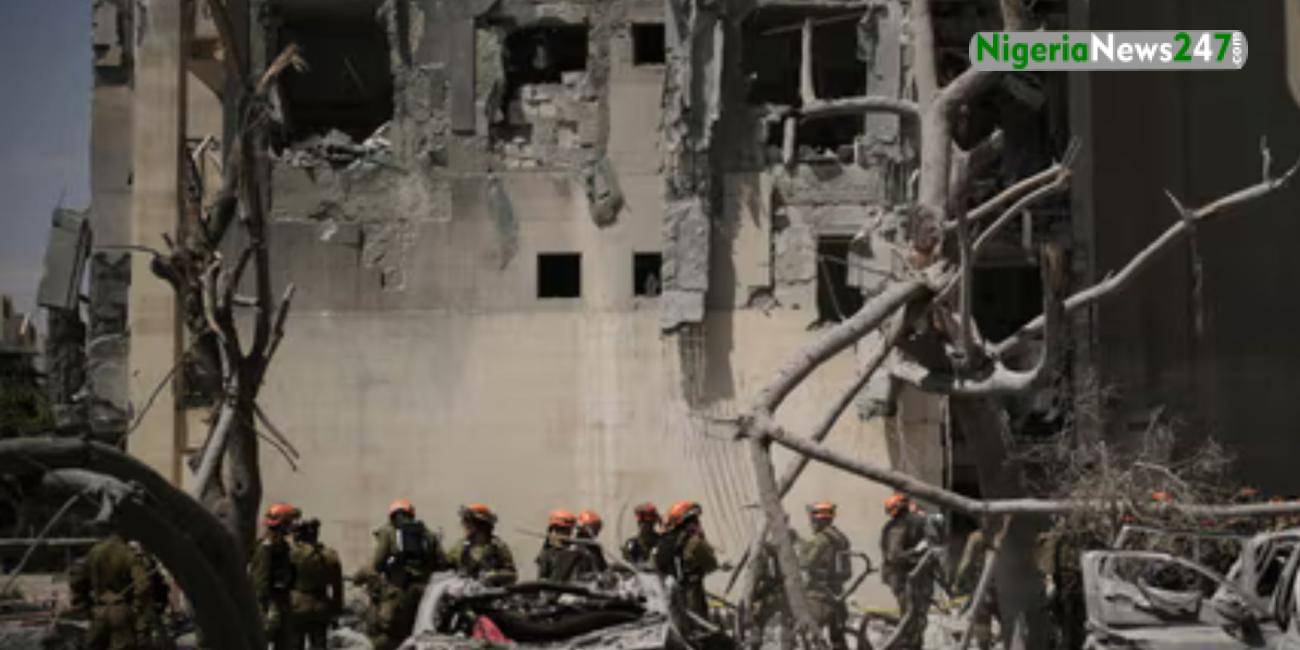WORLD
Israeli Airstrikes Hit Iranian Targets Near Tehran Despite Trump’s Ceasefire Claims

Fresh Israeli airstrikes struck Iranian sites near Tehran on Tuesday—just minutes after former U.S. President Donald Trump claimed on social media that Israel had agreed to stand down, raising fears of a full-scale regional war.
According to Reuters, explosions were reported in Iran’s capital shortly after Trump declared the mission aborted on his Truth Social platform. Iranian state-affiliated outlet Mizan confirmed two blasts were heard in Tehran, while Israeli Army Radio reported a radar installation near the city had been hit.
As of press time, the Israeli military had not issued an official statement.
The strikes appeared to directly contradict Trump’s online assertion that Israel had agreed to halt its operations. “All planes will turn around and head home, while doing a friendly ‘Plane Wave’ to Iran. Nobody will be hurt, the Ceasefire is in effect!” Trump posted earlier in the day.
The former president, speaking to reporters before departing for a NATO summit in The Hague, expressed frustration over the deteriorating ceasefire and criticized both Iran and Israel for escalating tensions. But he singled out Israel’s leadership for what he called a disproportionate response to what might have been an “unintentional” missile launch from Iran.
“Israel. Do not drop those bombs. If you do it, it is a major violation. Bring your pilots home, now!” Trump posted.
“I’ve got to get Israel to calm down now,” he told reporters. “Iran and Israel have been fighting so long and so hard that they don’t know what the f*** they’re doing.”
Despite his public pressure campaign, reports from Axios and Israeli media suggest Prime Minister Benjamin Netanyahu only agreed to scale back—not cancel—the airstrikes during a call with Trump prior to the operation.
Earlier Tuesday, Israeli Defence Minister Israel Katz had publicly ordered the resumption of strikes on “key Iranian targets” in Tehran, accusing Iran of violating the ceasefire by launching missiles. Iran, however, denied any such launch, insisting Israel initiated unprovoked attacks and broke the ceasefire terms.
“The Zionist regime is fabricating claims to justify continued aggression,” a senior Iranian military official said in a televised statement. Iranian sources claimed that Israeli attacks continued for more than 90 minutes after the ceasefire’s scheduled start time.
The renewed violence has complicated international efforts to de-escalate one of the Middle East’s most dangerous flashpoints. With both nations accused of undermining the ceasefire, diplomatic momentum is at risk of collapsing.
The United Nations and European Union have urged both sides to exercise restraint and honor the ceasefire agreement, which was reportedly brokered earlier this week with the help of France and Qatar.
Analysts warn that further escalation between Israel and Iran—both of whom have nuclear capabilities—could ignite a broader regional conflict, potentially drawing in allies on both sides and destabilizing an already fragile region.
FOLLOW US

















![Top Nigeria Newspaper Headlines Today 25th June 2024 [Tuesday] 87 Nigeria Newspaper Headlines](https://nigerianews247.com/wp-content/uploads/2024/04/Nigeria-Newspaper-Headlines-80x80.png)

![[VIDEO] Tinubu Stumbles while Boarding Presidential Parade Vehicle at Eagles Square 90 Tinubu Stumbles while Boarding Presidential Parade Vehicle at Eagles Square](https://nigerianews247.com/wp-content/uploads/2024/06/Tinubu-Stumbles-while-Boarding-Presidential-Parade-Vehicle-at-Eagles-Square-80x80.jpeg)


You must be logged in to post a comment Login